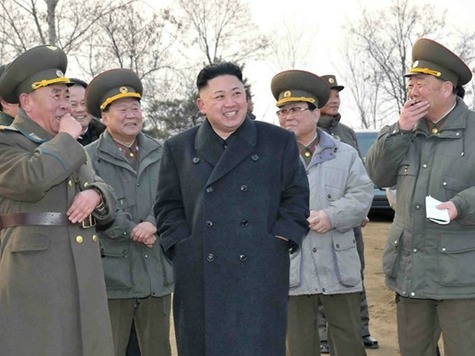North Korea fired three short-range missiles into the Sea of Japan on Sunday that fell into the ocean east of the Korean Peninsula, news agencies and the Wall Street Journal report.
South Korean defense experts cited by the Journal indicated the missiles were not the mid-range projectiles that the North Korean regime had appeared ready to launch during tensions earlier this year. The U.S. and South Korea warned North Korea but took no further action. The missiles may have been a protest against joint U.S.-South Korean naval exercises.
The behavior of the North Korean regime, which is officially known as the Democratic People’s Republic of Korea (DPRK), fits the pattern of decades past, in which nuclear provocation led to concessions from the U.S. and the international community on food aid and other forms of international assistance.
The North Korean economy does little trade with the rest of the world and its main source of foreign currency is the black market. A South Korean-run factory providing legitimate income to the DPRK was recently suspended.
The administration of U.S. President George W. Bush removed North Korea from a list of international sponsors of terrorism, and the White House under President Barack Obama was even more aggressive in exploring opportunities for reconciliation, even holding secret meetings with the new regime of Kim Jong Un.
Those meetings failed to yield any progress, and the DPRK has been increasingly performative in its demands, unilaterally abrogating a sixty-year-old armistice with South Korea and warning of imminent war.
Thus far the present round of saber-rattling has yielded few concrete gains. North Korea recently imprisoned a South Korean-born American tour guide, and U.S. basketball star Dennis Rodman recently pleaded for President Obama to engage the DPRK directly after visiting with its leader.
But the Obama administration has failed to respond, at least publicly, earning praise from some conservative critics of the president’s foreign policy. Meanwhile, the provocations continue, worrying U.S. allies in the region, including Japan.
North Korea’s behavior suggests China has adopted a more permissive approach to its client state, perhaps in an attempt to probe the weaknesses of the U.S. in the western Pacific. President Obama has said that the U.S. is shifting focus to Asia, but he has also trimmed the U.S. armed forces–especially the Navy–and the recent budget sequester (proposed by the White House and passed by Congress) has forced additional cutbacks. Some Japanese leaders have suggested that country build a more assertive naval defense force to compensate.

COMMENTS
Please let us know if you're having issues with commenting.